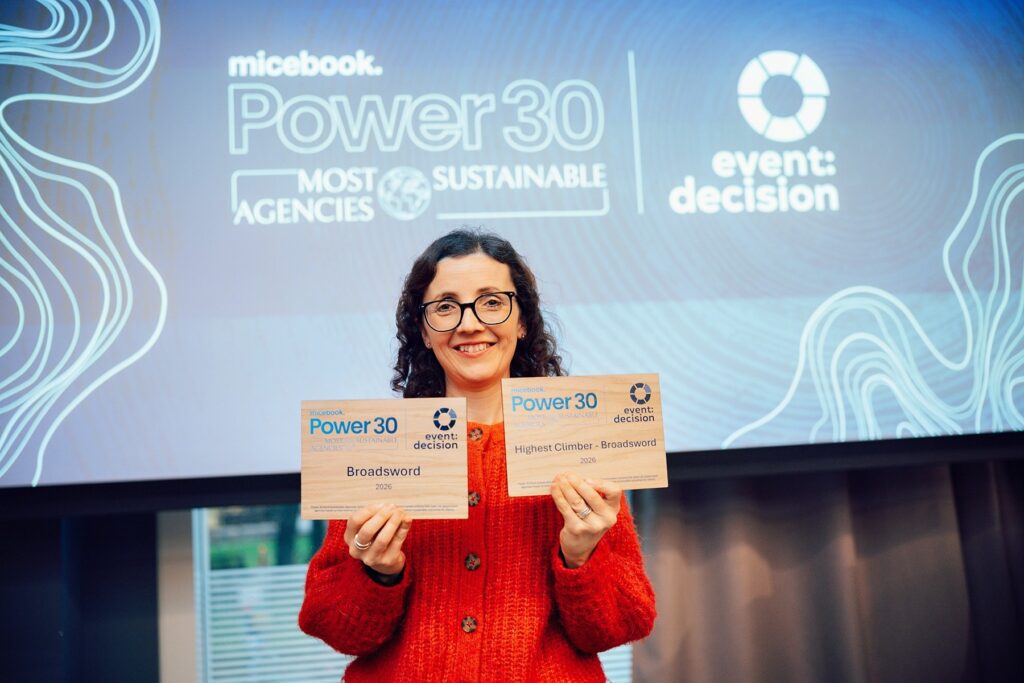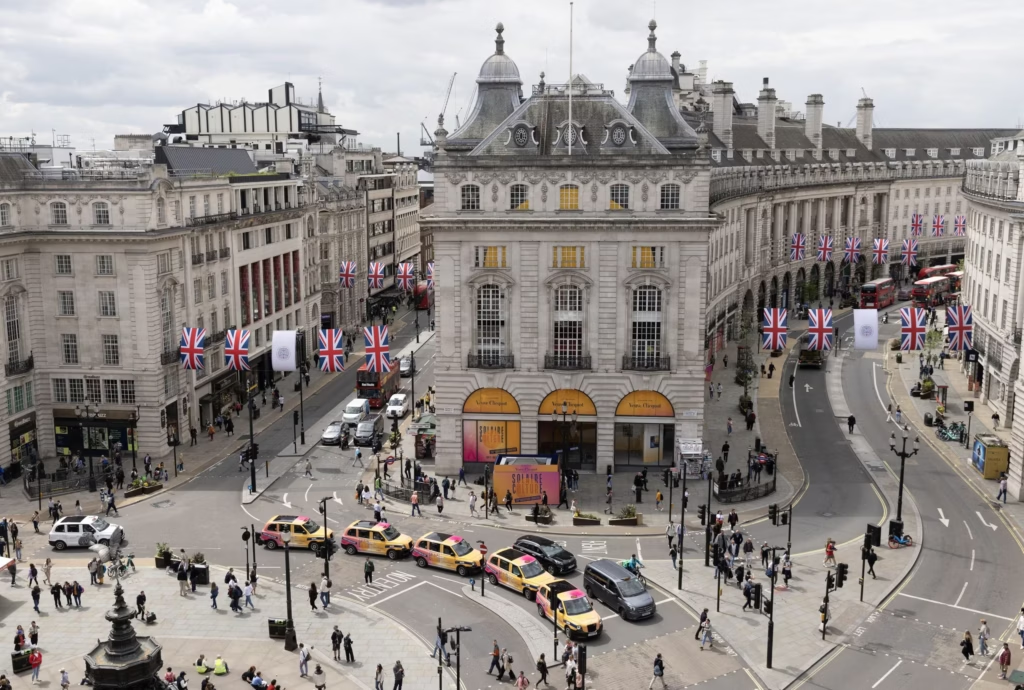An Event Planner’s Guide to Egypt
The Most-Asked Questions on Event Technology, Answered

As an event agency, we regularly host a thought leadership panel for our clients and other corporate event professionals, and our latest session was on the topic on every event planner’s mind – the growth of technology in the events industry.
Brands are racing to harness the awe-inspiring potential of emerging tools like AI, VR and AR to elevate their customer experiences and shape a new future in the events landscape and we are here to support them do just that.
To shape the session, we asked our audience of event, communications, and marketing professionals to co-create the conversation, submitting the questions that matter most to them. But we didn’t get to answer them all, hence below is a relevant snapshot of what this audience is asking about artificial intelligence, event technology, and the future of events in today’s technology driven climate – their burning questions and concerns – and the answers from the expert panel. Ultimately answering how we can best make use of emerging technology to plan and execute events and enhance human connection and what the future of the events industry might look like.
AI and the future of events and experiences
Q: Boom or doom? What’s your honest take on the future of AI in the creative and event industries?
A: The power of creativity is integral not only to connect people to brands, but also to solve big problems that are arising. The evolution of technology has enabled access to these tools for everyone with a phone and the internet, meaning the ability to create, innovate, make informed decisions and analyse data for us, meaning it can enhance creativity.
Q: As AI systems continue to evolve rapidly, what’s the most overlooked risk – or opportunity with AI – that people just aren’t paying enough attention to?
A: Planners shouldn’t be afraid of AI; they should be using it. Events are human centric, so technology should be used to enhance these experiences, not replace human interaction. The human element remains integral and having specialist knowledge allows you to better use and engage with AI.
Q: What are the most common challenges you see when brands try to integrate AI, VR or AR into their events?
A: Many planners have to overcome reluctance and budgets from stakeholders when implementing new innovations into their events. This is because the technology is often quite exciting, but it can sometimes get in the way of your core message. When VR in particular rose in popularity, we were being asked by all of our clients how to use it. And the conclusion was that VR goggles get uncomfortable to wear after period of time. Whereas AR and seamless wearables could be an alternate solution – think about what’s the best fit for your event’s purpose and audience.
Q: Is there a piece of tech you think is over-hyped right now? And is there one that’s flying under the radar?
A: Most people are now using models like Chat GPT for task automation, insight extraction, and content generation, but these models still have room to grow. Most are trained on the past and sometimes come up with false information, but they are still developing at a rapid rate. Flying more under the radar in the events industry, is human representation. We can put AI generated panellists on the stage to ask questions in real time, or on-screen avatars tracking the movements of the speaker behind the scenes.
Designing for immersion
Q: Why is it more important than ever to create experiences that go beyond the plenary? What’s driving the demand for immersive, multi-layered events?
A: When registering to attend an event, delegates are committing their time out of a busy schedule so it’s important to provide real value for them when they are there. Attendees don’t want to spend this time as a passive guest, listening to keynote after keynote in a plenary session. They want to contribute, participate, shape conversations, and make connections. As event planners we can facilitate this in a creative way through workshops, event technology, breakout sessions, and gamification.
Q: How do you distinguish between experience enhancing and engaging technology and superficial gimmicks? What does adding real value look like?
A: The keyword for planners is engagement. For example, data doesn’t have to be on charts on presentations – it can be visualised. If you have a thousand people in the audience, they don’t all need to know or can’t engage with an in-depth level of data. Perhaps a QR code takes those that want to know more to the data and allow them to zoom in on these higher-level takeaways.
The most impactful technology moments don’t come from trying to implement the newest technology for the sake of it – it begins with taking a detailed look at your goals, creative ideas, challenges, and discussions with experts.
Q: What about the format – many events lose a chunk of their audience throughout the day, what would you suggest incentivising delegates to stay for the whole day of any event?
A: We all know that people’s attention spans drops quickly so it’s important to keep an agenda interesting but outside of the main plenary, you do have the potential of a captive audience throughout the entire event. In these moments what do you want to capture? What insight can an audience share with you? How can you facilitate networking? Or how can you engage them with your brand? Technology and creativity allows us to capture these moments better. For example, interactive touchscreens and walls can be used to poll audiences and canvas opinions.
The traditional event format is changing, shaped by experiential moments, hybrid events, and micro events. Consider hosting a half day event such as a breakfast as part of your wider communications campaign.
Technology as a creative tool
Q: Many planners asked: can you realistically incorporate VR, AR or AI tools into events without breaking the bank? What if you have a low budget or can’t get stakeholders on board?
A: You need to think about if the tool is the right fit for your purpose. Creative Director, Martin, recommends brainstorming the big out-of-budget ideas first and reducing these or reframing these into what can actually be achieved to trigger creative thinking. Where you don’t have to have the latest tech, which always costs the most money, you can go back a couple of steps and narrow the experience down to having what it needs, to actually serve the intent better. And sometimes this means asking how to incorporate technology and then finding that a non-tech item serves the same purpose. For example, a sticker wall over a touchscreen wall. Coming up with solutions can be just as creative as integrating off the shelf technology.
Q: What’s the most common tech you’re integrating into events right now to create memorable, meaningful moments?
A: There is so much cool technology available to event planners as well as more traditional engagement tools that are being reframed in unexpected or new ways. LED walls, which we’ve all seen before, can be enhanced by syncing up the on screen content to live art, music, performances and displays, having AI characters and cinematic effects appear on screen, or creating a floor to ceiling immersive LED environment allowing a speaker to be standing in the world they are talking about. From a pragmatic budget perspective, simple tools like QR codes to network, share live information and create resource libraries can really add value for attendees.
Q: We had several great questions around networking. What are some of the most effective or creative ways you’ve seen tech being used to better facilitate discussions and connections between delegates?
A: There have been some truly innovative uses of tech in recent years to help delegates connect more meaningfully at small and large-scale events. For example, AI powered matchmaking platforms can analyse attendee profiles, interests, and objectives to suggest quality connections and interest-based zones for certain topics – even creating virtual environments where avatars can engage with the topic.
Related insights

Broadsword awarded highest climbing sustainable agency

